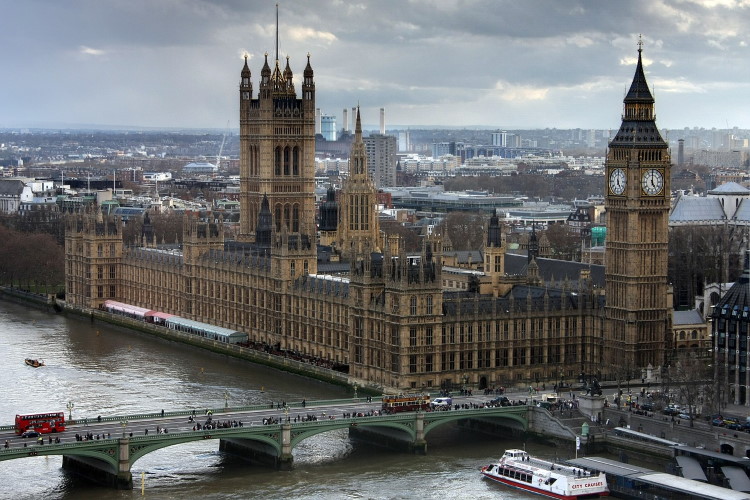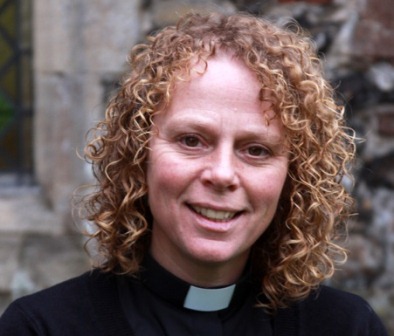Opinion

Was Jesus involved in politics?
Following the announcement this week of a general election on December 12, Suzanne Cooke discusses the extent to which Jesus was involved in the politics of His time.
We’ve been having a lively debate in our house this week. Well, when I say a ‘debate’, what I really mean is that Adrian has been ranting because he heard on the news that a vicar somewhere in Wiltshire is standing as a UKIP candidate in the recently announced general election. I’m sure we all might have varying opinions about what we think of that!
Anyway, all this led to us talking about the ‘politics’ of Jesus. And for us to ask the question – was Jesus political and should we as Christians get involved in politics?
The Anglican Church does have, of course, a particular place in the political life of our society: there are 26 seats for Bishops, the Lords Spiritual, out of a total of 760 seats in the House of Lords. So, if nothing else, this implies, or at least gives a nod to, the fact that for us in Great Britain, the Anglican Church, The Church of England, is the ‘established church’ and is placed at the centre of power and influence in this country.
So, we begin to build a picture of where ‘Church’ might sit within political debate, but where did Jesus see Himself within the political landscape of his own time?
I think it’s difficult to be clear about what we mean when we talk about Jesus being involved in or commenting on politics, but we certainly get a glimpse of what Jesus thought about God’s authority in the public sphere when in Matthew, Mark and Luke, Jesus is asked whether it is lawful for Jews to pay taxes. Jesus’ well-known response is: ‘Render unto Caesar that which is Caesars and to God that which is God’s’.
Many commentators believe that Jesus is telling us here something of the Jewish understanding of society and the individual. For Jews, there was not a simple divide between the body, the soul, and spirit; life was not split conveniently into different categories. Jewish priests would have been as involved in making laws, policies and decisions about people’s welfare, as much as they were involved in when, where and how they should worship God.
Now, it may be that we would have our opinions about how that kind of power could be abused today. But what it demonstrates is that, for Jesus, there would not have been that convenient distinction between the realms of public life and the world that God, and therefore between the things He should get involved in and those He shouldn’t.
However, I do think Jesus had an incredible understanding of the politics of power. I think He, quite literally, perfectly understood how power is used by individuals, groups and empires to coerce, control, manipulate, discriminate and oppress society in general and in-particular those who are powerless.
In Jesus’ time, and in ours, the most powerless were often the poor and so we hear Jesus speak many times about the central importance of looking after those who have less than we do. But I don’t believe it was only the poor that Jesus was concerned with – what His message of Good News does is give us all the tools we need to live side by side with others in a way that is respectful and loving towards all people, enabling us all, ultimately, to thrive in an environment that seeks to honour and respect the dignity of every person, whoever and whatever their gender, race, sexuality or religion. This is the message we repeatedly see spoken and enacted by Jesus in His life and ministry.
So, maybe my response to the questions around Jesus and politics might seem a little ambiguous. Crucially, however, I don’t believe that Jesus was concerned with what we might call ‘party politics’. But I do think that He was interested in the politics of power – of how we use power, directly and indirectly against those around us. Jesus was unconcerned with a person’s social status, with their personal standing, with their bank balance or with the opinions someone might have about them. But He was concerned with was the authenticity of their heart, of their ability to love and be loved, and their ability to show compassion to themselves and to those around them.
Jesus was, I believe, unavoidably involved in the ‘politics’ of His time. He was involved because politics deals with the wellbeing of those around us. This means that it becomes the business of those who care about the wellbeing of those around them. And it becomes our business – it becomes our business - because as Christians, that is what the Good News calls us to make our business.
 Suzanne Cooke is the vicar of four rural churches, sitting at the foot of the Cheviot Hills in the far north of Northumberland. Her call to ministry came whilst living with her family in North Norfolk and she is proud to have begun her ordained life in the Norwich Diocese.
Suzanne Cooke is the vicar of four rural churches, sitting at the foot of the Cheviot Hills in the far north of Northumberland. Her call to ministry came whilst living with her family in North Norfolk and she is proud to have begun her ordained life in the Norwich Diocese.
The views carried here are those of the author, not of Network Norfolk, and are intended to stimulate constructive and good-natured debate between website users.